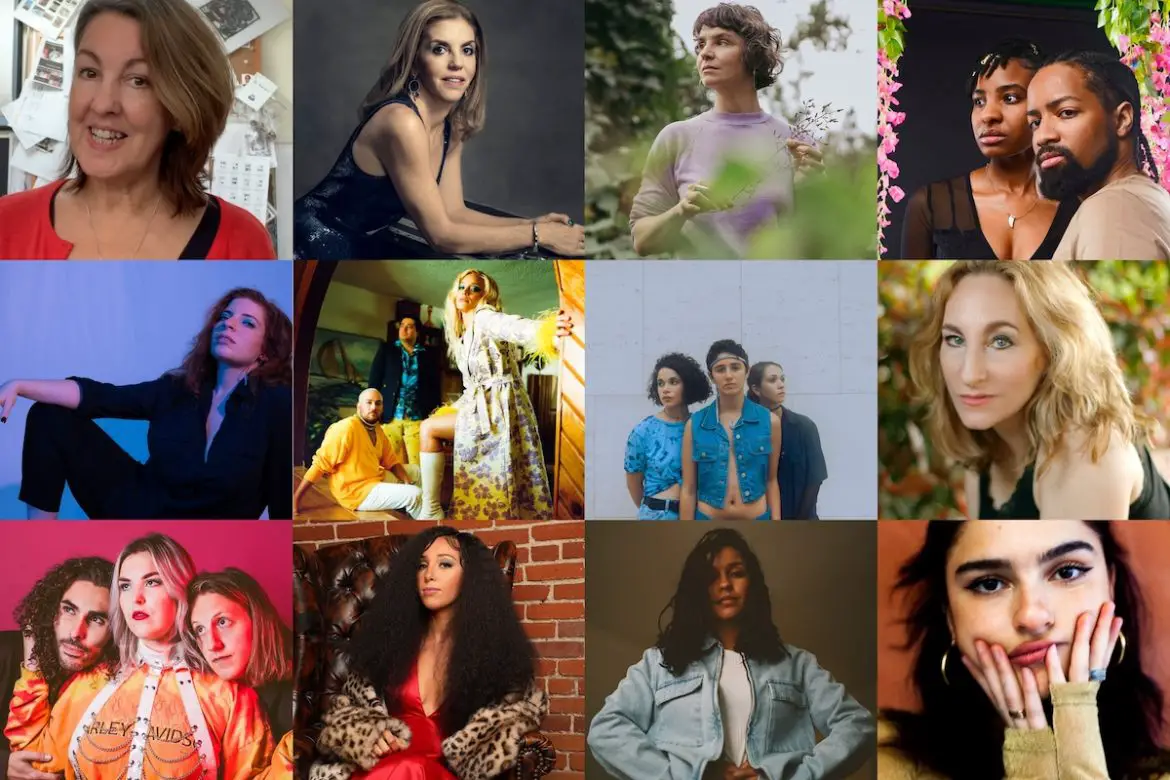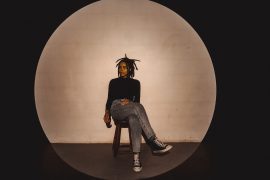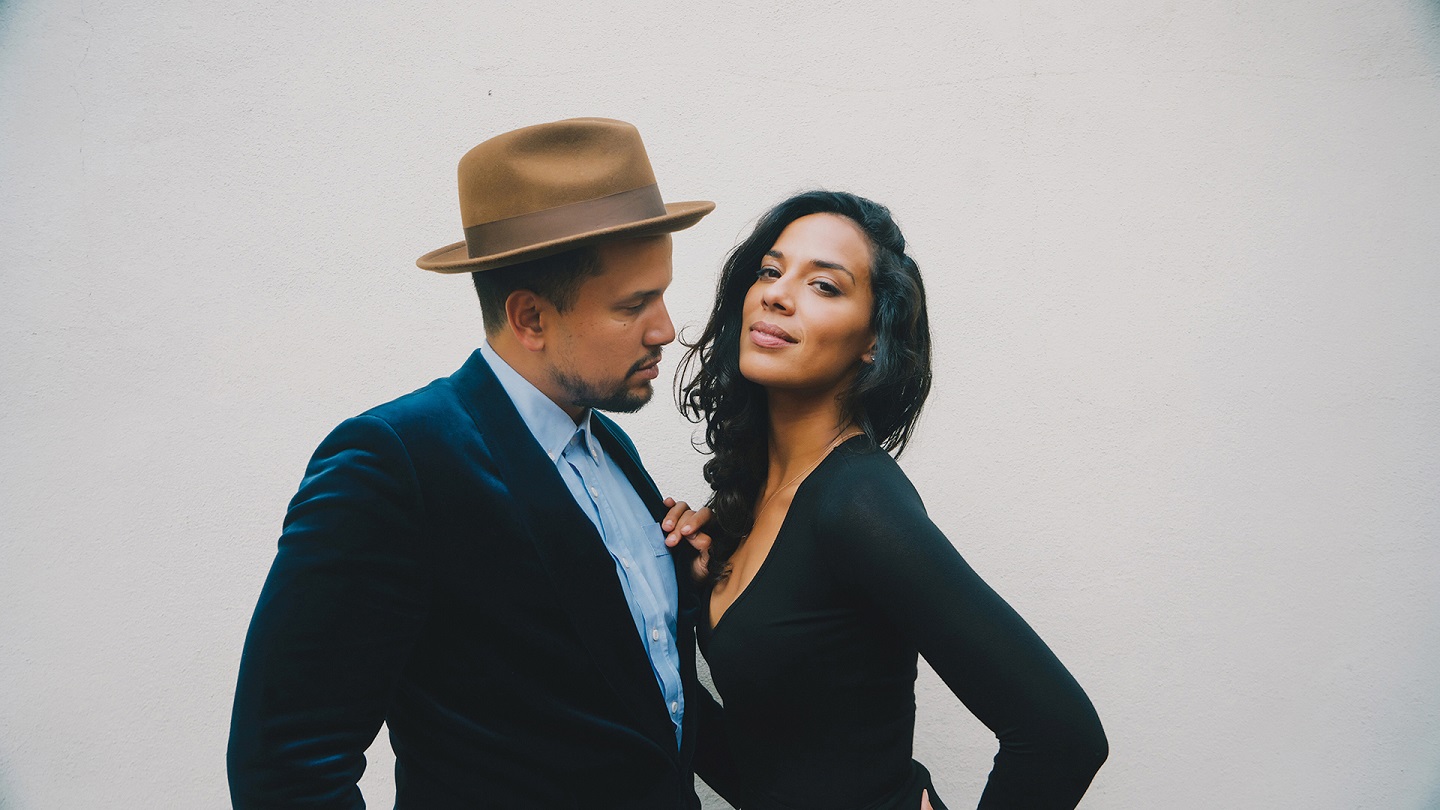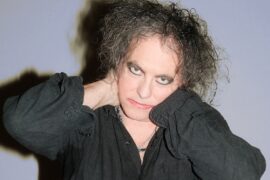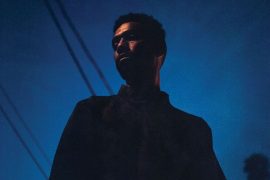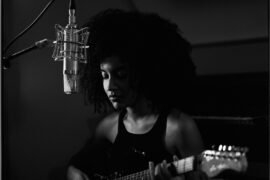Just as the pandemic began in 2020, a wave of protest and calls for equity were the anthems of the year, leading to important conversations surrounding inclusivity and equitable treatment for LGBTQ+ communities, BIPOC communities, and women. Intersectionality must be front and center in these conversations, and those conversations must continue into 2021. Today, and throughout the month of March, Atwood Magazine will be continuing those conversations in celebration of Women’s History Month — including artists and publicists alike discussing the state of the music industry and its role in gender equity.
In Part II of our series, Atwood spoke with and highlighted 12 women in the industry, asking them to reflect on the ways misogyny can be combatted, how they perceive their place in the industry, and how we can choose to challenge the music industry for better representation.
– Adrian Vargas, Managing Editor
– Mariel Fechik, Junior Editor
•• •• •• ••
Ashley Zarah, Dani Jo Williams (Rubygld Smoke), Jenny Lea (I M U R), Eliza Shaddad, Moon Kissed, Kelly McFarling, Lauren Isenberg (Renforshort), Whitney McClain, Michelle Joy (Cannons), Fiona Bloom, Vivienne Boucherat, Leila Cobo
•• ••
:: Atwood Magazine Celebrates Women ::
 follow our Women’s History Month playlist on Spotify
follow our Women’s History Month playlist on Spotify 
:: Ashley Zarah ::
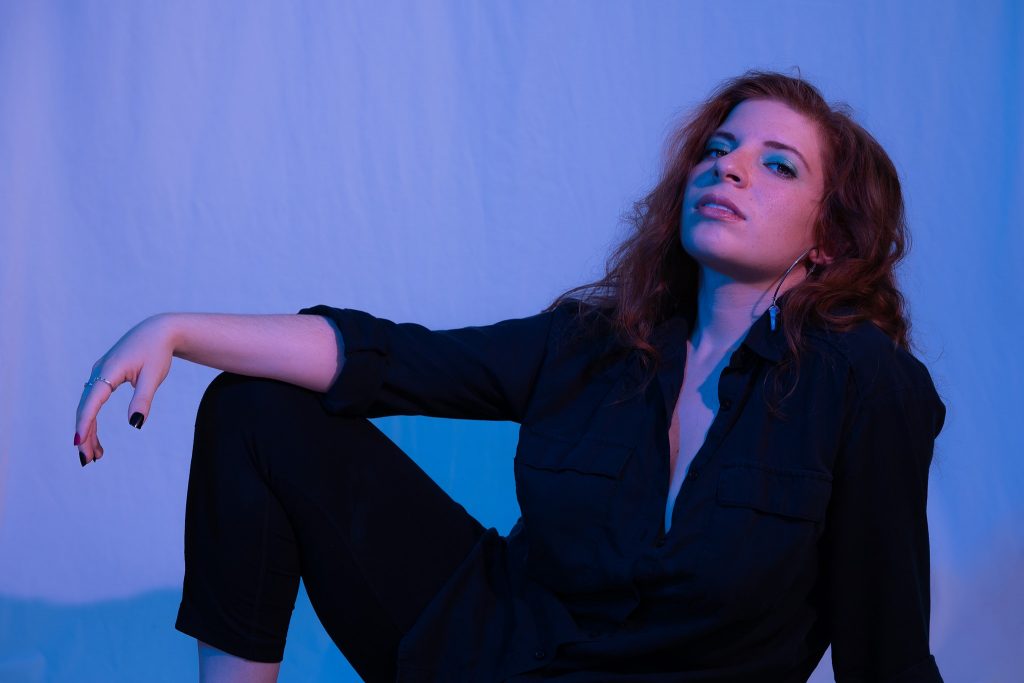
What kind of space do you want to carve out for yourself as a woman in this industry?
I want to make sure that women know they’re not beholden by where they come from; that we can change the status quo through representation and transparency, and that we have the right to do what makes us happy. Every culture has different standards and expectations laid out for men and women – a lot of us have been told since we were young what we are and are not allowed to do; what is and is not meant for us. I’m a middle-eastern, Jewish woman who was expected to follow a specific path that even people outside of my community agreed with. Even I thought the music industry was only made for citizens of the Western world and therefore tried endlessly to appease that audience.
When I completely committed myself to music and being my authentic self, I opened my unique world up for people to peer into. I’ve watched their opinions and understanding of what an Iranian identity looks like evolve from the stereotypes they’re familiar with. And even better, I’ve empowered and supported other middle-eastern women to pursue what brings them joy despite the norms their cultures have placed on them. It’s incredibly difficult, but we gain so much power and freedom when we remove judgment and expectation out of the equation and pursue what we love simply because it is what we love.
Misogyny can be so insidious in the music world. What are some ways you've been able to combat it and what kind of advice would you offer to women who are just coming into the industry?
I was raised in a rather conservative and incredibly polite community, so speaking up to elders and men were two things I have had a difficult time with and continue to work on today. Every situation is different, but something that continually keeps me grounded and focused is my relationship with myself. Insults and patronizing opinions can only go so far when you know who you are and have a lot of love and faith in yourself. I also make sure I have a great team around me because tackling misogyny in the green room and then going on stage to give a killer performance is not easy. So having a support system that reminds you who you are and the magic you’re bringing to the world is super important to remember you’re never alone in this battle. In addition… being excellent at your craft sometimes speaks louder than anything else.
How would you challenge the music industry in order to increase meaningful representation and provide better support for women?
To ameliorate our representation in the music industry, I deliberately offer opportunities to female creators and try to craft all-women teams. I love that women in the music industry are no longer pegged against each other the way they were in the past, so elevating and promoting one another’s work, collaborating, and offering their services to others is a great way to support women in the industry. Needless to say, having the industry prioritize representation would be a game-changer. Having large festivals that actively support inclusion and diversity in their sets; labels seeking a gender-balanced roster of songwriters, performers, and producers to sign; embracing the complexity of intersectional identities rather than seeking the same artistic-tropes thinking it will repeat successes. I think that last one is huge. Labels don’t seem to understand the unbreakable bond that intricate identities make between an artist and their fans.
Lastly, what are you working on currently? Anything coming down the pipeline you’re excited to share with fans?
I am very excited to share my upcoming EP, Mad In The Travel, with the world. Mad In The Travel is a desert-themed, electronic EP that I wrote and produced in collaboration with my dear friend, Venezualan producer, GVLA. The stories focus a lot on self-awareness and the fears, strengths, and changes we find in all that. The music is inspired by a lot of things, one being my Iranian culture. My ancestors have been living in the middle-eastern desert for thousands of years and I am the first to be raised in the West, funny enough, still in a desert and in the largest Iranian community outside of Iran. I love seeing my Persian identity organically flow into my work and there is no shortage of that in this project, including the visual aspects. I wanted to make sure this was a celebration of Iranian art because the single and its video will be released on March 19th which is Norooz, Iranian New Year! This is the second Norooz we are celebrating in quarantine, so hopefully, it will have people dancing and welcoming the new year in a fun, familiar way.
:: Dani Jo William (RubyGld Smoke) ::
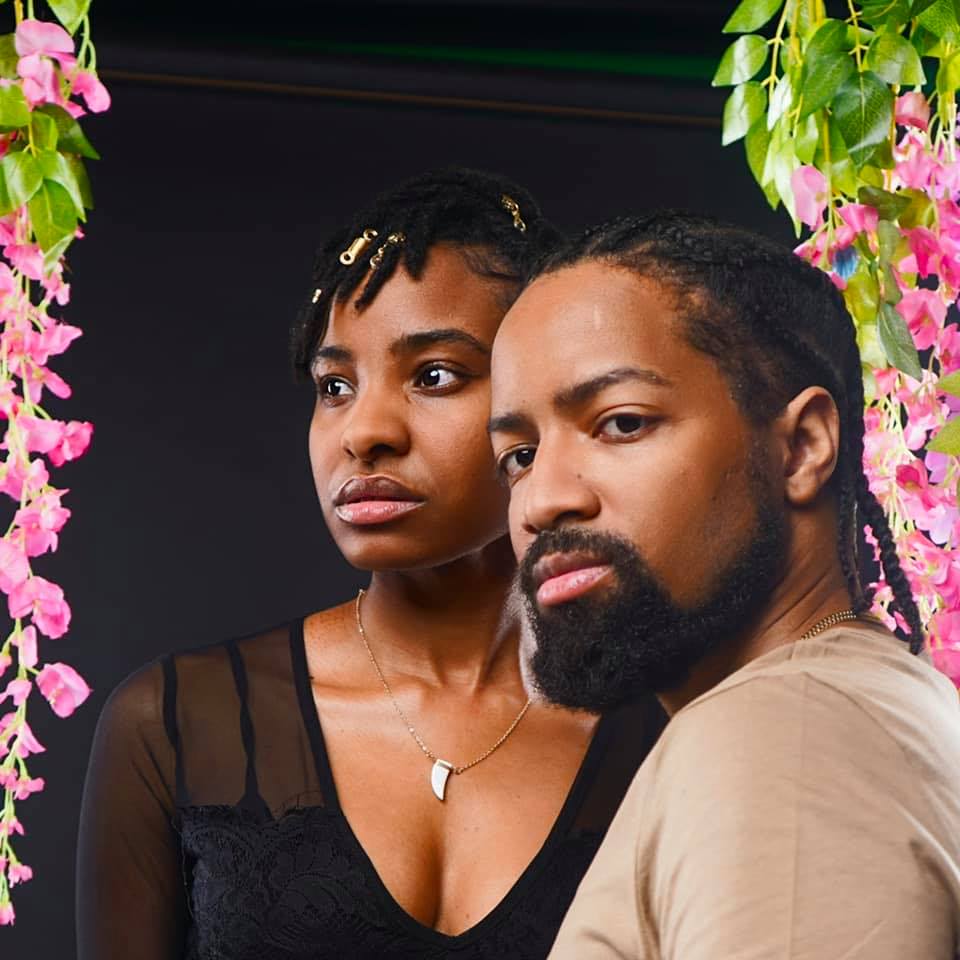
What kind of space do you want to carve out for yourself as a woman in this industry?
Misogyny can be so insidious in the music world. What are some ways you've been able to combat it and what kind of advice would you offer to women who are just coming into the industry?
How would you challenge the music industry in order to increase meaningful representation and provide better support for women?
Lastly, what are you working on currently? Anything coming down the pipeline you’re excited to share with fans?
My husband and I are a pop-soul music duo called RubyGld Smoke. Our virtual concert special produced by our film company Quiet Kingdom Media Group is available now here! It’s a live performance of songs from our debut album Revolutionary Love. Our humanitarian organization, Symphony of Change, just launched our 2021 arts education program in underserved schools in Chicago. Also, we are launching our sound design company later this month.
:: Kelly McFarling ::
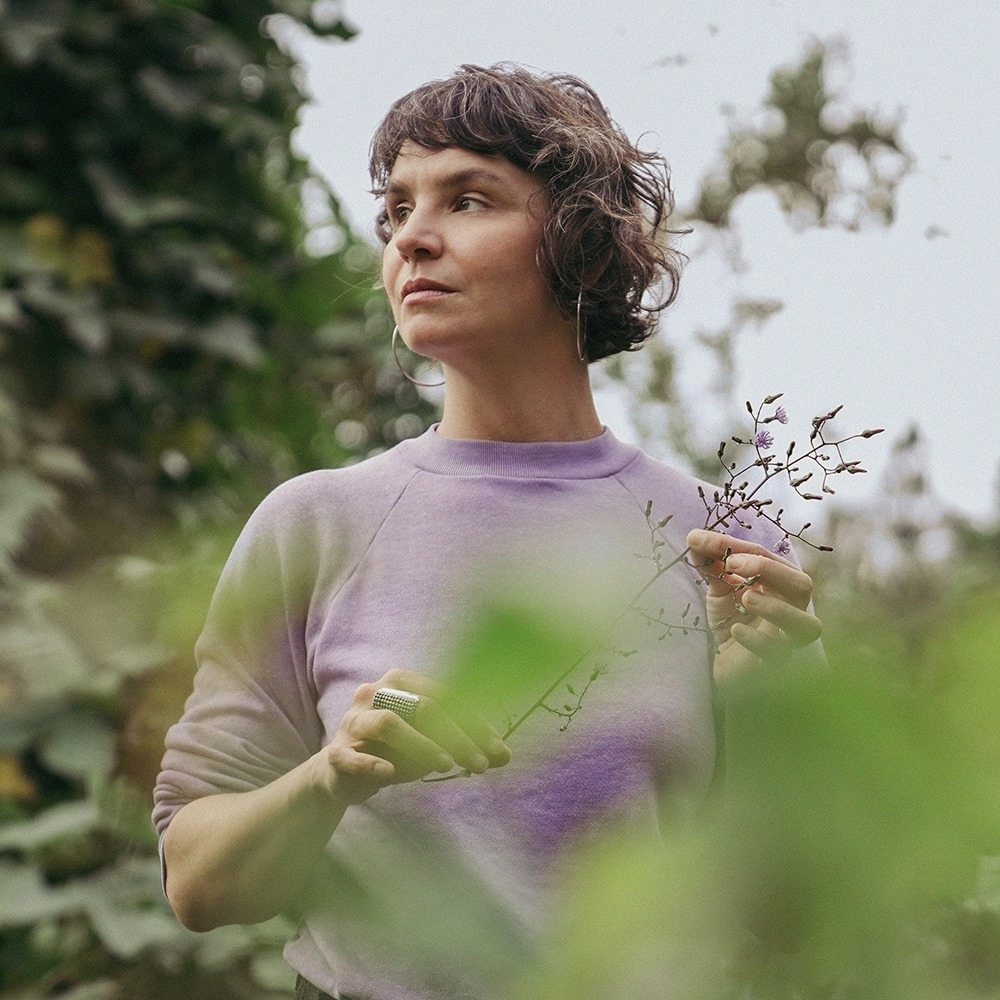
What kind of space do you want to carve out for yourself as a woman in this industry?
Authentic and expressive space that doesn’t focus on my gender.
Misogyny can be so insidious in the music world. What are some ways you've been able to combat it and what kind of advice would you offer to women who are just coming into the industry?
Surround yourself with people who you know and trust and love. People you can talk to about these things. People who are able to see the systemic challenges of misogyny in themselves and the larger picture. Talking about it, creating and discussing awareness about it; these are important things, and I have found there are many willing to engage in the conversations.
How would you challenge the music industry in order to increase meaningful representation and provide better support for women?
I’d encourage the music industry to book more women performers, hire more women engineers, and do away with the boys club mentality.
Lastly, what are you working on currently? Anything coming down the pipeline you’re excited to share with fans?
I’m releasing an album on March 12th called Deep the Habit!
:: Fiona Bloom, Founder, The Bloom Effect ::
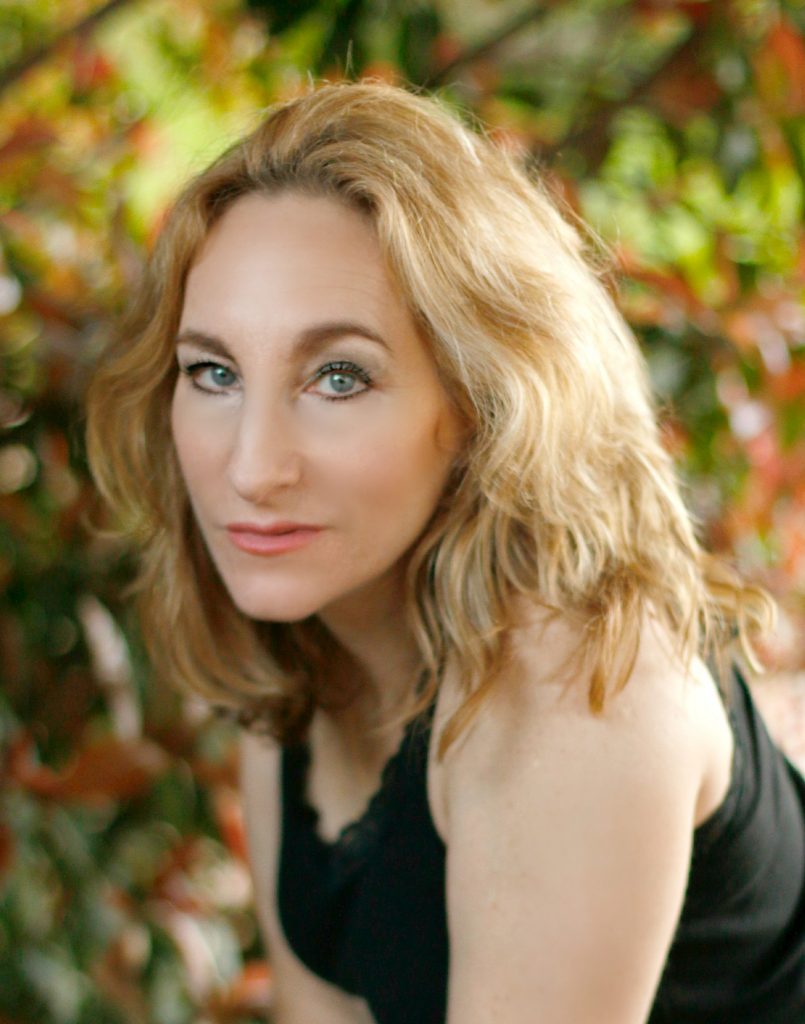
What kind of space do you want to carve out for yourself as a woman in this industry?
I’d love to carve out a space in this industry where we’re kind and supportive to one another. I’d love to see more women uplift and champion efforts collectively. A safe space to share and help shape our narrative yet have our individual voices heard, appreciated, and respected. Fearless, Strong but ok to show our sensitive side and not be criticized for it. We’re all human. Compassion, Empathy, and Humility are everything.
Misogyny can be so insidious in the music world. What are some ways you've been able to combat it and what kind of advice would you offer to women who are just coming into the industry?
I try to combat misogyny on a daily basis just by working smarter and not being afraid to speak out. The more we suppress our voices, the more men will continue to lead and take us for granted. We can’t hold back because we’re worried about offending or damaging egos. Stand up for what’s right. The best advice I can give to a woman just coming into the industry is to be ‘unapologetic’. Don’t mask your feelings. Be commanding, communicate so that nothing gets lost in translation, and be your Best Self.
How would you challenge the music industry in order to increase meaningful representation and provide better support for women?
We definitely have more work to do but we’re making headway. We still need salaries to match what our male counterparts earn. More mentorships, more networking organizations, and a support system that looks out for our best interests. I’d love to see more conferences expand their initiatives in inclusivity and diversity. Awards shows and other more male-dominated sectors need to really step up and recognize more women. The Future is Female.
:: Jenny Lea (I M U R) ::
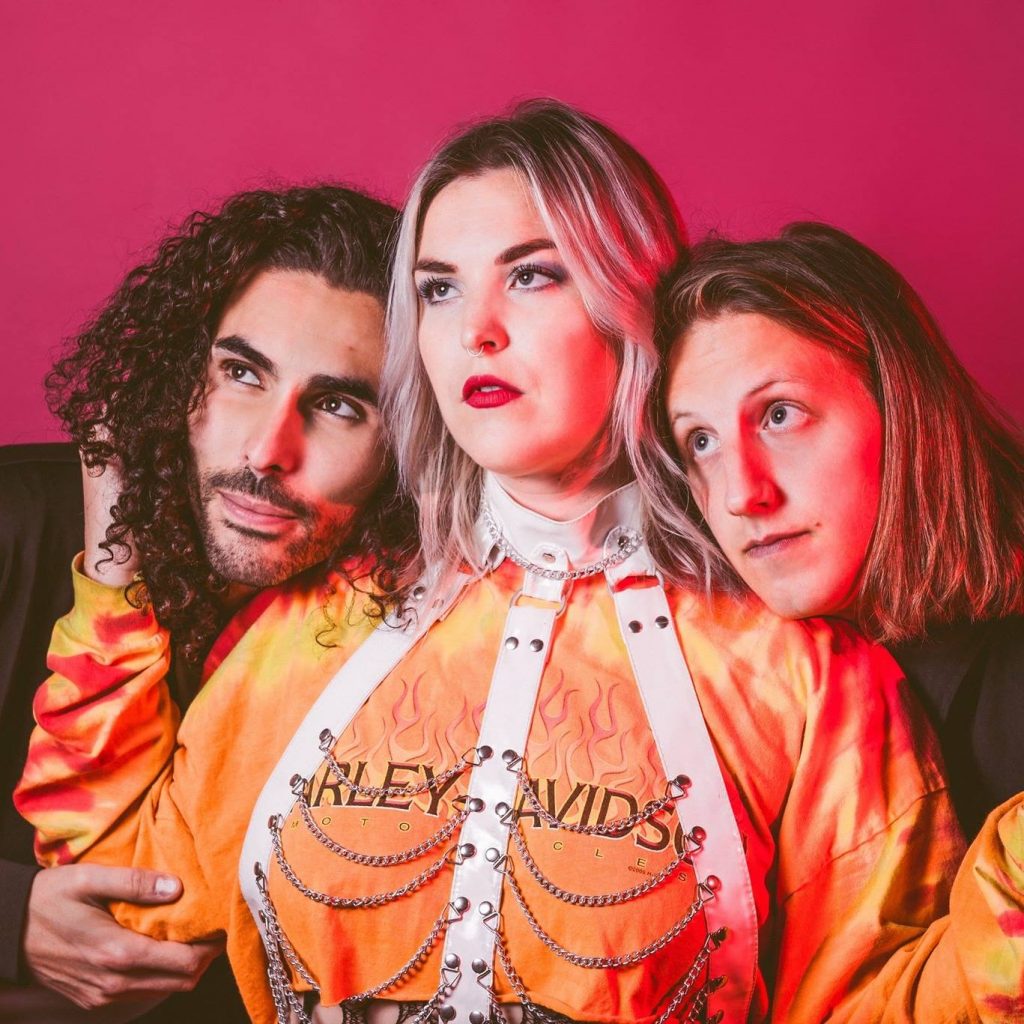
What kind of space do you want to carve out for yourself as a woman in this industry?
I want to create space for vulnerability and raw expression. These are meaningful ways to connect with other people and music is a universal language. When we let our walls down we allow ourselves to be truly seen and understood. I hope my work can encourage other people to feel comfortable in doing the same.
Misogyny can be so insidious in the music world. What are some ways you've been able to combat it and what kind of advice would you offer to women who are just coming into the industry?
You know, women are truly magical. We are healers, emotionally intelligent, and extremely intuitive. A lot of this can get stripped from us by the language that is used about women, especially when we work with folks who have heavy egos in a still somewhat outdated, biased industry. I’m blessed to have a really incredible sisterhood and support system in my life that enables me to work through these things. My advice is that patience is an absolute virtue, but don’t let people walk on you. If you don’t feel heard, express that. Try not to take anything personally because it’s most likely not. And remember, you are a bad bitch, trust your gut.
How would you challenge the music industry in order to increase meaningful representation and provide better support for women?
There’s still so much that needs to change. From the very old ideals that female artists must have sex-appeal, having a different opinion makes you difficult, and the disproportionate lack of representation at festivals. I would challenge the industry to actively support diversity and inclusion programs, implement festival lineup equality, and this should all go without saying while championing intersectionality. Not only provide equal opportunity but equal encouragement for female musicians.
Lastly, what are you working on currently? Anything coming down the pipeline you’re excited to share with fans?
I just finished an album with my band, I M U R. We’ve got announcements coming soon! Stay tuned to our social media on all platforms @weareimur!
:: Leah (Moon Kissed) ::
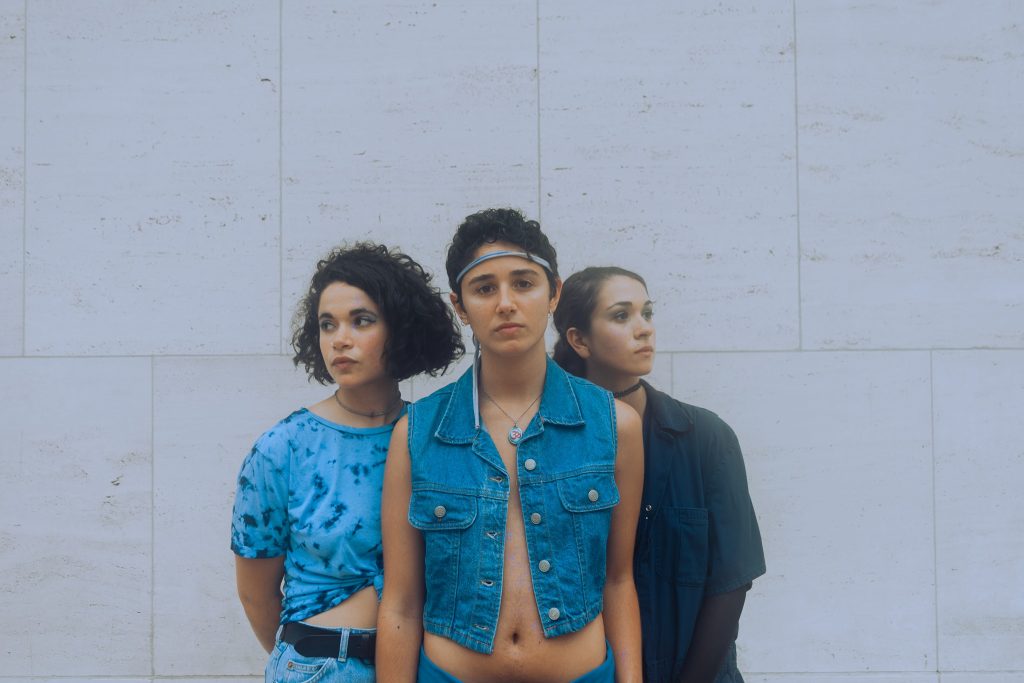
What kind of space do you want to carve out for yourself as a woman in this industry?
I want to be able to share with people the joy that music brings me.
Misogyny can be so insidious in the music world. What are some ways you've been able to combat it and what kind of advice would you offer to women who are just coming into the industry?
I’ve learned to speak kindly to myself in order to counteract the voices of criticism I’ve internalized from male musicians/teachers. The advice I’d give to other women is that your self-confidence can be an incredible asset for your career, and can help inspire and uplift others in the process.
How would you challenge the music industry in order to increase meaningful representation and provide better support for women?
Actively go out of your way to hire women and particularly women of color for everything.
Lastly, what are you working on currently? Anything coming down the pipeline you’re excited to share with fans?
April 7th we will be releasing our song “Clubbing In Your Bedroom” along with a music video!
:: Eliza Shaddad ::
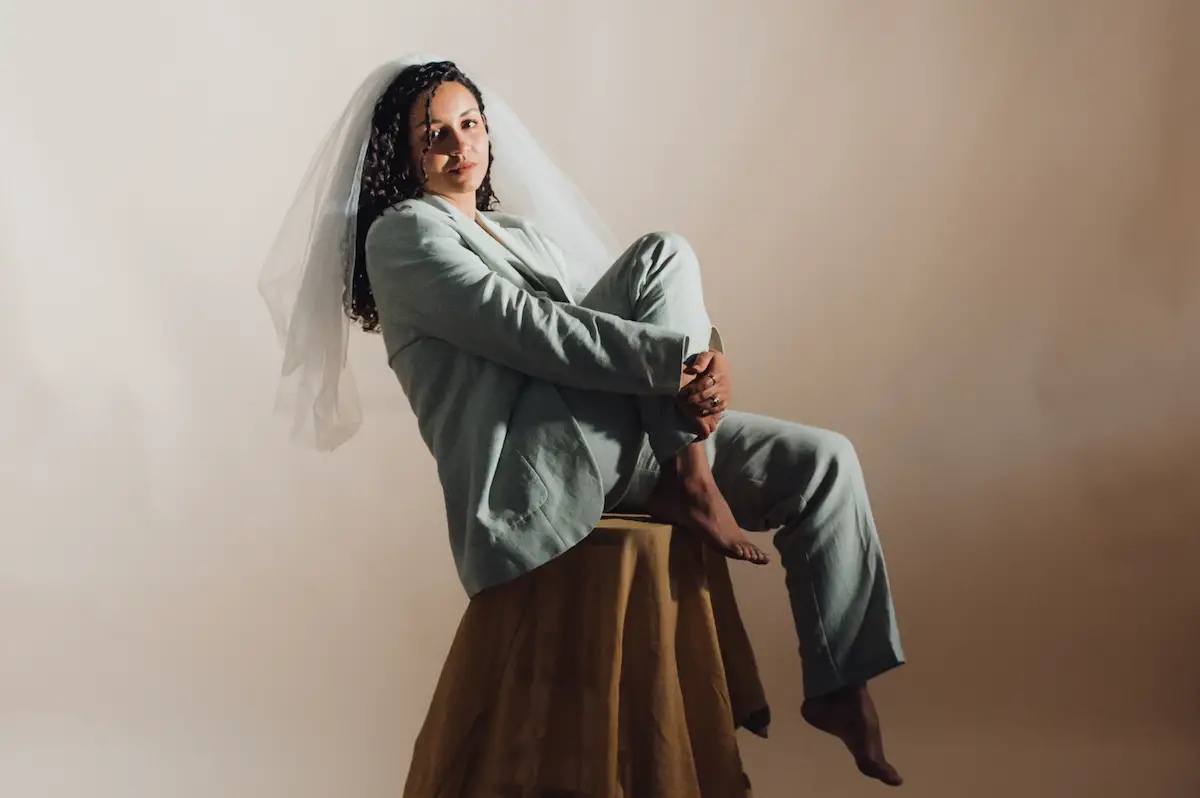
What kind of space do you want to carve out for yourself as a woman in this industry?
Artist, Songwriter, Musician, Innovator, Force for good.
Misogyny can be so insidious in the music world. What are some ways you've been able to combat it and what kind of advice would you offer to women who are just coming into the industry?
I think more often than not it is unchallenged deeply, and maybe unnoticed, embedded views that cause the most damage. People not questioning why they think things – and going with their gut reaction rather than examining the reasons… For example, the idea that it’s a bit awkward or detrimental to a show or its artists if multiple women are on a lineup together. I’ve heard that throughout my career.. and I think it stems from not seeing people as individuals, and not trusting in their talent as artists to shine in unique ways. Me and my friend Samantha Lindo set up a group called Girls Girls Girls 10 years ago this year to try and provide a platform for female-led arts which showed how mad that idea was.
We’ve done plenty of brilliant all-female shows with huge voices over the years and I think showcasing only women has been a hugely rewarding, and endlessly exciting way to experience music. We were inspired to do that after playing a lot of mostly male line-up shows, and after Samantha watched Beyonce play Glastonbury with her all female-crew and came back to London elated – and I think that made it clearer to me that the first step to change is recognising what you feel is wrong, but the second, quite crucial, and really empowering step is having access to some folks further along/role-models out there that can inspire you to do something about it.
To a musician starting out I would suggest taking advantage of all the amazing initiatives + forums out there that are working to make opportunities more equal – groups like Girls To The Front, Womxn in CTRL, Red Bull’s Normal Not Novelty, and PRS’ Women in Music Fund. It feels amazing to connect with other women on these topics and help each other, and if after that you see there is still work to be done and you can imagine how to improve things – get involved and help make those changes, and help inspire the artists that are coming after you.
How would you challenge the music industry in order to increase meaningful representation and provide better support for women?
Womxn in CTRL have done some amazing research into the number of female/male artists signed to big labels, big publishers and lots of other statistical research and their findings are so illuminating. It made me super aware of how important that kind of research is in exposing the things we might not notice on a day-to-day basis. I would challenge the ‘gatekeepers’ of the music industry to examine those statistics and try to figure out why they are what they are.. and where things are going wrong. And I would ask everyone, myself included – to consider what prejudices they might have that maybe subconsciously affect the way they choose to work and the people they choose to work with.
Lastly, what are you working on currently? Anything coming down the pipeline you’re excited to share with fans?
I’m stoked to say this year is going to be full of new music and women for me:) I recently released a cover of one of my absolute favourite female artists Nina Simone which is zooming around the internet and TVs at the moment on the Netflix series Behind Her Eyes, and even more excitingly I’ve been working on a brand new piece of work which is all about identity and womanhood, which I get to share the first taste of this month!! Samantha and I are also (having gone so long without any shows it’s like physical ache) elated to be announcing a 10-year-anniversary Girls Girls Girls show, with an incredible line up of women, for the 10th June at St George’s Church in Bristol! So yep, super excited for this year!
:: Leila Cobo, VP/Latin Industry Lead, Billboard ::
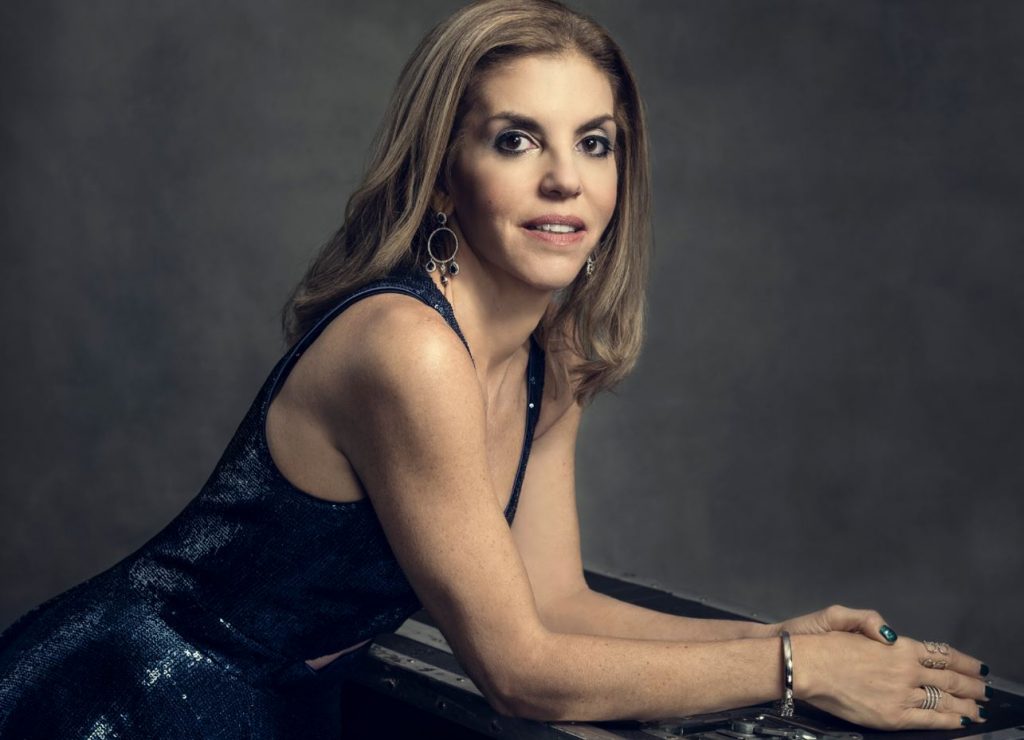
What kind of space do you want to carve out for yourself as a woman in this industry?
A visible, positive space. My constant battle is against invisibility. As a Latin writer and editor, I want to create a space for me to thrive personally and professionally while showcasing Latin music and culture in the manner that it needs and deserves. It brings me no joy to have a job that provides financial security if I can’t thrive and properly represent my community and their accomplishments. And when those spaces don’t exist, we must create them.
Misogyny can be so insidious in the music world. What are some ways you've been able to combat it and what kind of advice would you offer to women who are just coming into the industry?
Above all else, you have to be excellent at what you do. My father always told my sister and me that as women, we had to be better prepared than men, so we could overcome any obstacle. And, I HAVE to add, the journey is harder still when one is a Latin immigrant. To paraphrase John Leguizamo, we work twice as hard to get half as far. As immigrant women, I’d say we work three times as hard!
How would you challenge the music industry in order to increase meaningful representation and provide better support for women?
It’s good for your bottom line. You have a population of women and girls who are hungry for content for and about female artists. The only way to really connect with that avid consumer base is by fostering your female talent, both at the artistic and executive level, and by investing in them.
:: Whitney McClain ::
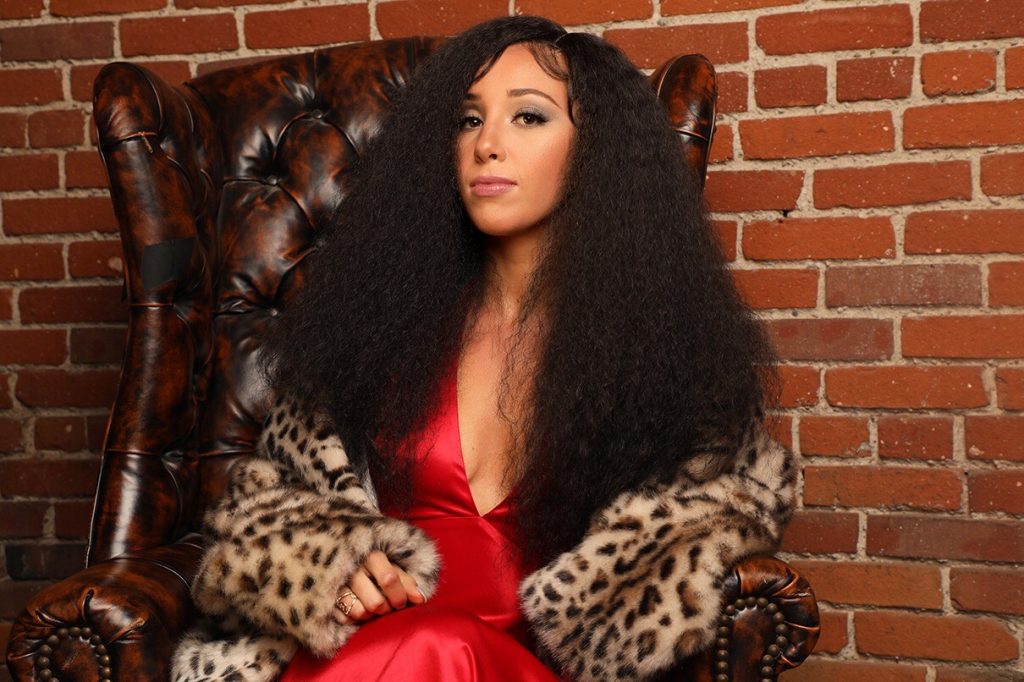
What kind of space do you want to carve out for yourself as a woman in this industry?
As a woman in the music industry, I am not concerned with going with the current trends I kind of go against the grain a little bit. I love doing music but I’m not concerned with what the clique of a pop singer is. I have deep foundations rooted in my faith in God and a conviction to be a good example. My goal is to make great music that people can connect to and heal with. As a woman in this industry, I want my image and work to stand in line with my values.
Misogyny can be so insidious in the music world. What are some ways you've been able to combat it and what kind of advice would you offer to women who are just coming into the industry?
Being an independent artist has helped me avoid a lot of the misogynistic qualities of this industry. Being an independent artist allows me to have more control over my art and career. I would encourage other women to not be afraid to speak up and take charge or find ways to have input.
How would you challenge the music industry in order to increase meaningful representation and provide better support for women?
I would challenge them to hire more women in executive roles and spotlight female producers and engineers.
Lastly, what are you working on currently? Anything coming down the pipeline you’re excited to share with fans?
I’m currently working on new music – nothing I’m ready to share details about yet. Stay tuned!
:: Lauren Isenberg (Renforshort) ::
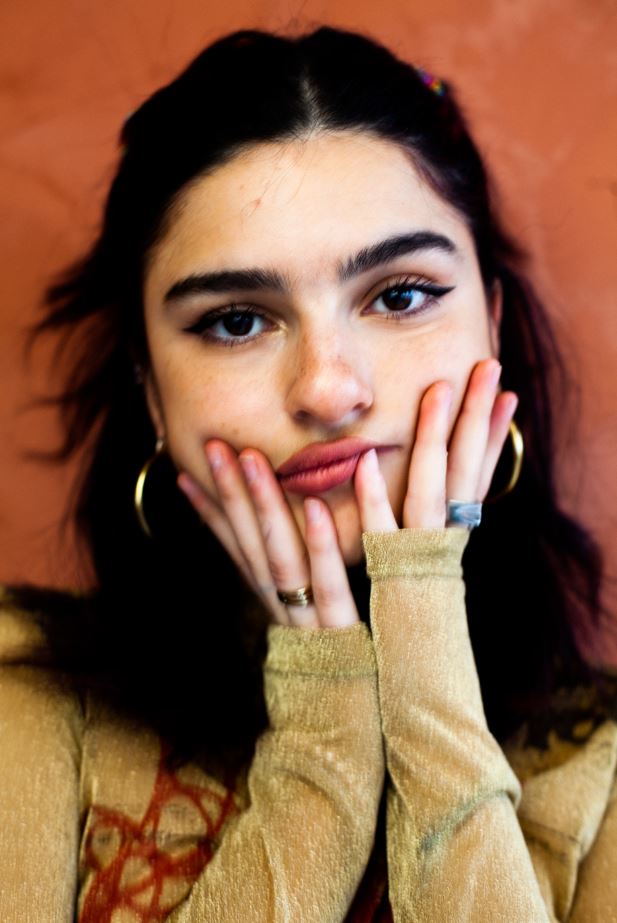
What kind of space do you want to carve out for yourself as a woman in this industry?
I think as a woman in this industry, it’s always been harder to be as authentic as we want to be without feeling judged, cause for some fucked up reason as a woman we get judged 110% more than a man would if he did the same thing. I would also like a lot of men in this industry to understand that we don’t always wanna fuck them, we just wanna make sick fucking music and feel comfortable doing it, and not have to deal with creepy dudes all the damn time.
Misogyny can be so insidious in the music world. What are some ways you've been able to combat it and what kind of advice would you offer to women who are just coming into the industry?
I would say every man who thinks you’re weird or over the top is insecure and you gotta ignore them, nothing you do is weird or impolite or strange, people are just gonna want to give u a hard time cause ur female. I combat that by simply not giving a fuck or listening to men telling me I’m being weird or “slutty” it took me a long time to ignore it but when I finally did I became way more comfortable. Women coming into the industry should know that your gonna have a harder time because ur a girl in a male-dominated industry but you gotta just say fuck it and show the world how amazing you are!
How would you challenge the music industry in order to increase meaningful representation and provide better support for women?
I would say the industry as a whole should do more for women, cause right out the gate we have to work way harder than a man would to equate the same amount of success. Some people have put this into words really well that I’ve seen recently like Amy Allen made a story talking about this basically saying what I just said.
Lastly, what are you working on currently? Anything coming down the pipeline you’re excited to share with fans?
I have an EP rolling out at the moment and I’m so so excited for it, I’m really proud of it and the visuals will be crazy! so stay tuned!
:: Michelle Joy (Cannons) ::
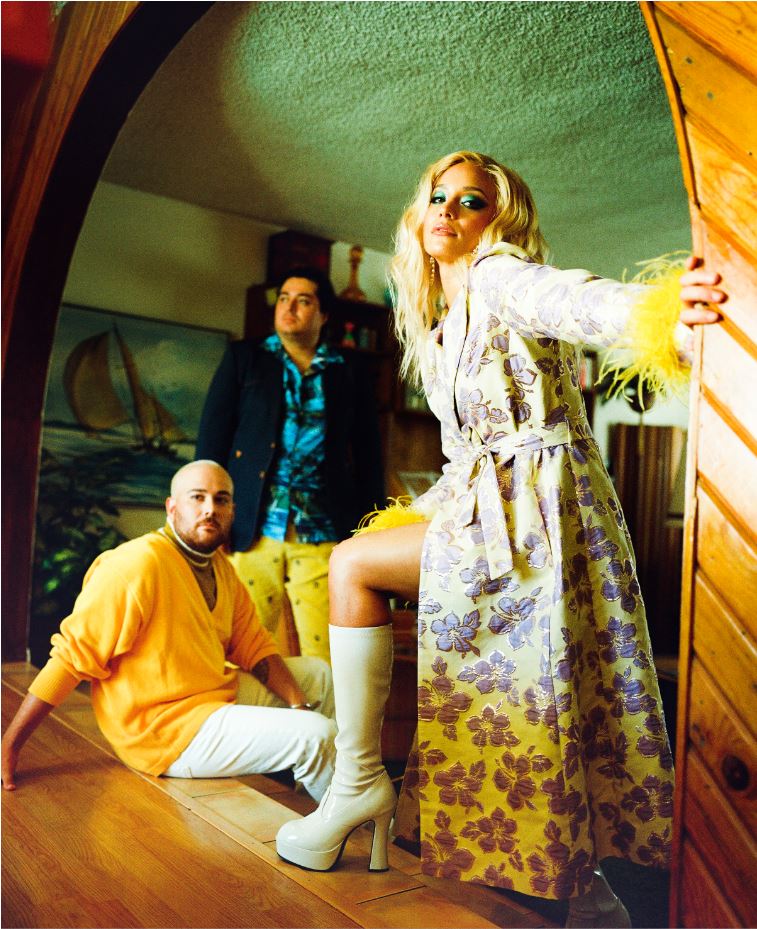
What kind of space do you want to carve out for yourself as a woman in this industry?
I’d like to carve out a space where I can be respected for my ideas, music, and art.
Misogyny can be so insidious in the music world. What are some ways you've been able to combat it and what kind of advice would you offer to women who are just coming into the industry?
Over the past seven years, I have grown to not be afraid to speak up and fight for what I need. If I could give other women just coming into the industry any advice, it would be to not be afraid to set boundaries or worry about being likable and to keep supporting other women. I would also tell them to not give up, we need you!
How would you challenge the music industry in order to increase meaningful representation and provide better support for women?
I would challenge the music industry to support female-led festivals and music publishers as well as female program directors to combat the gender imbalance.
Lastly, what are you working on currently? Anything coming down the pipeline you’re excited to share with fans?
We released our new single “Bad Dream” on March 10 and a music video for the song will follow in the coming weeks as well as possibly a few more singles before the new album!
:: Vivienne Boucherat, Visual artist/musician/songwriter/Co-director, Sunfish Music Ltd. ::
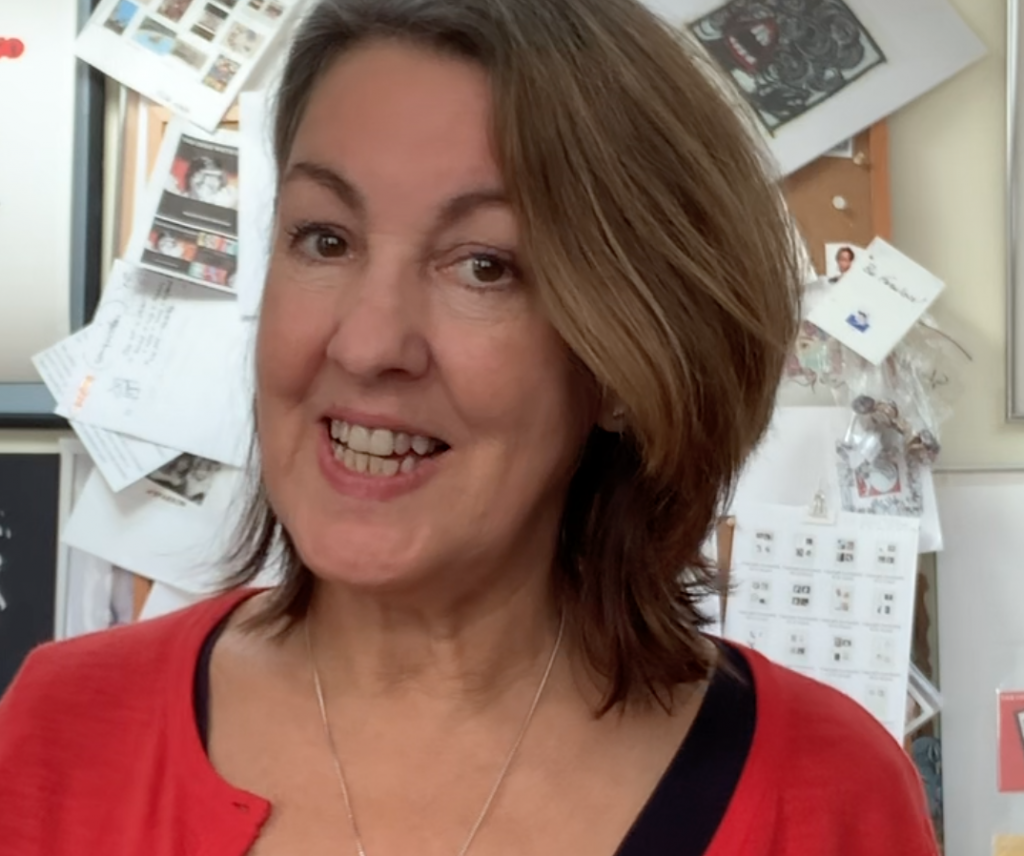
What kind of space do you want to carve out for yourself as a woman in this industry?
A lot of the creative side of the music industry is made up of independent free-lancers, which I think would accurately describe my ‘space’. Regardless of gender, as ‘creatives’, all of our spaces are unique and the scope of our work difficult to describe. It has been important for me to be able to work as a valid part of a group but also to be able to work as an independent creator. I continue to learn. I continue to carve.
Misogyny can be so insidious in the music world. What are some ways you've been able to combat it and what kind of advice would you offer to women who are just coming into the industry?
As far as combatting misogyny/sexism myself: I came to the industry late – I was already in my late 20’s. The sexism I have encountered personally in this time has simply been the lazy acceptance of the status quo or has been sheer ignorance. It is easy to be outraged by the patriarchy but, as a female, I found using humour and knowledge of a subject to be a good defence, as well as a good way to inform! We need enlightened men as well as informed women to gain parity and I have been lucky enough to meet a few enlightened men on my creative journey.
In general, I have had a good experience in the workplace, and for the most part, I have been able to communicate with, been listened to, and been respected by musicians, writers, and admin alike. However, what truly stands out for me in my career journey is standing up to workplace discrimination when necessary, ensuring that everyone is treated fairly and respectfully. We only have to know the stories of great artists such as Judy Garland, Billy Holliday, and Tina Turner to know that the music industry ‘machine’ is capable of unjustifiable abuses and misogyny. Different genres of music carry their own sexist reputations. Sadly, recent and current high-profile lawsuits eg. Britney Spears, Kesha, Taylor Swift tell us that this lack of basic compassion or respect hasn’t gone away.
As to the second part of the question – what advice would I offer to women just coming into the industry? Awareness is the biggest thing I think – in two ways: Firstly, be aware of your environment. Get informed and communicate with as wide a group as possible. Be aware of the state of the industry. It is easy to research statistics that tell us how the industry is made up. Gender inequality rears its’ head across the board, but, forewarned is forearmed. Secondly, be self-aware. Sex sells, and the most vulnerable will probably be young, attractive, and talented females. Take notice of your instincts and if something doesn’t feel right, learn where you can find support or gain knowledge.
How would you challenge the music industry in order to increase meaningful representation and provide better support for women?
I am no expert in voicing what needs to change, especially in an industry that is historically so male-dominated. In the UK there are official bodies such as AIM (Association of Independent Music), and initiatives such as Vick Bain’s F-List (a directory of female musicians set up to raise their profile and professional opportunities), which are making differences and raising awareness about issues of diversity. These bodies are helping us all to become more aware of the realities and their work should get a lot more publicity. Certain sectors of the music business should have more accountability. There is a lot of information out there and with International Women’s Day on the horizon, there is a lot of opportunity to get involved, express opinions, and make small differences.
— —
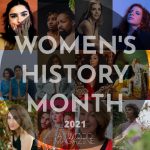
Connect to Atwood Magazine on
Facebook, Twitter, Instagram
Discover new music on Atwood Magazine
:: Atwood Magazine Celebrates Women ::
 follow our Women’s History Month playlist on Spotify
follow our Women’s History Month playlist on Spotify 

